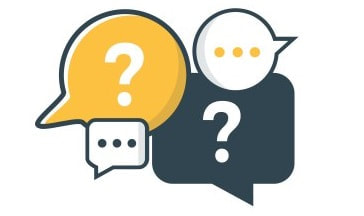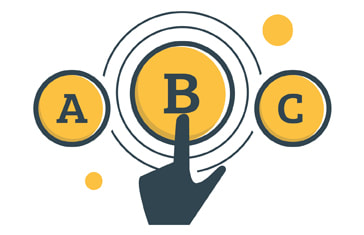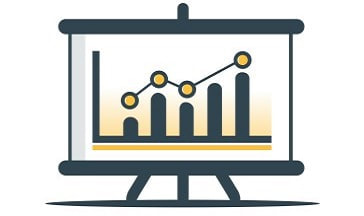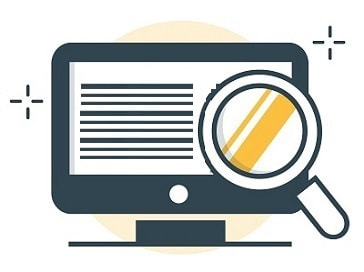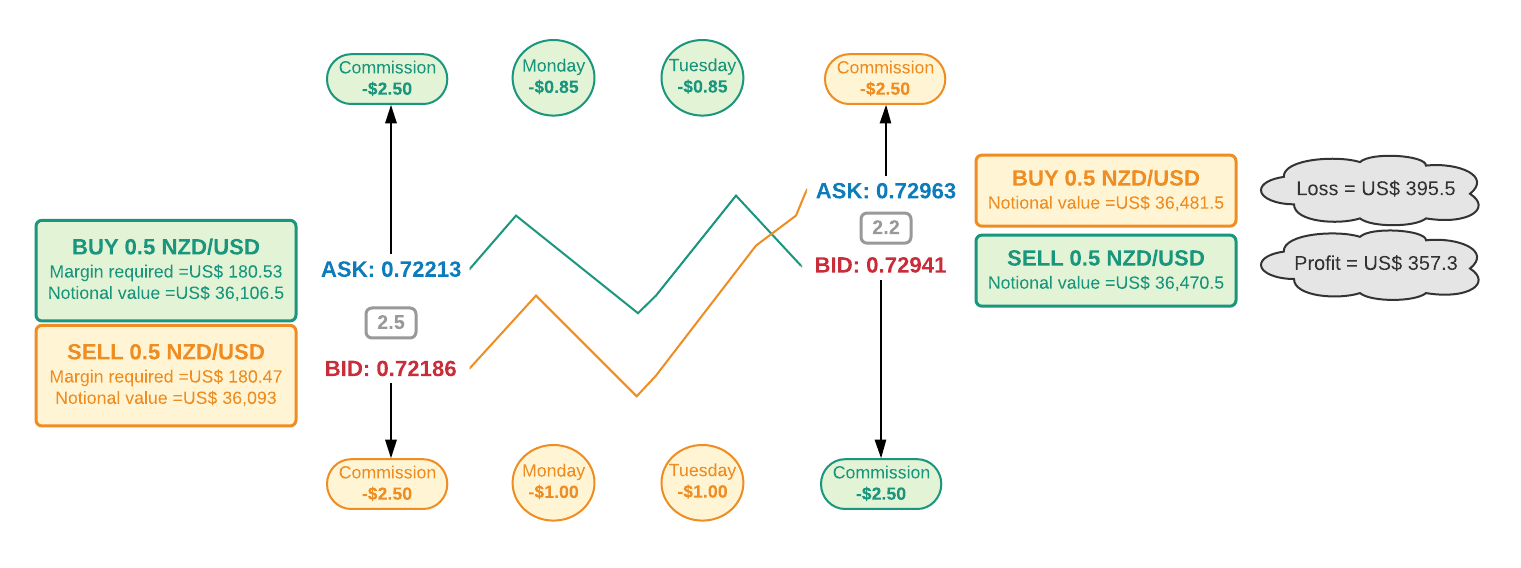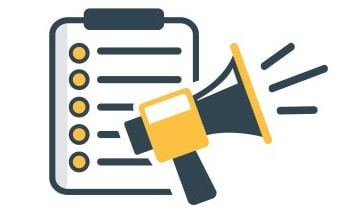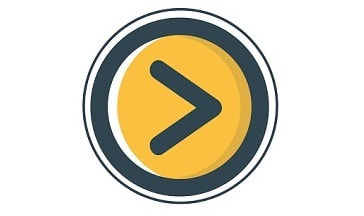Foreign Exchange Currency Trading Guide
Be aware: Trading foreign exchange is risky, complicated and, generally, unprofitable for part-time traders. Our guide explains everything you need to know
Updated 26 April 2024
Warning: Before we go further, please be aware that trading foreign exchange derivatives is incredibly risky, complicated and generally unprofitable for part-time traders. Our guide explains everything you need to know before deciding to take things further.
Looking to compare Forex Trading Platforms? Our MetaTrader 4 vs cTrader vs MetaTrader 5 vs Currenex Comparison has you covered.
Warning: Before we go further, please be aware that trading foreign exchange derivatives is incredibly risky, complicated and generally unprofitable for part-time traders. Our guide explains everything you need to know before deciding to take things further.
Looking to compare Forex Trading Platforms? Our MetaTrader 4 vs cTrader vs MetaTrader 5 vs Currenex Comparison has you covered.
What is Forex Trading?
- Forex (also known as foreign exchange or FX) involves buying and selling foreign currencies to make a profit. Unless you have reliable insights as to where foreign currencies are going, making money from FX is near-impossible in the long-run. This is because you’re trading alongside major investment banks, full-time FX traders and hedge fund managers. Even the most skilled and experienced traders struggle to predict FX movements.
- Most guides on the topic of forex trading will begin with an overly simplistic analogy of describing a foreign exchange transaction as heading to your local bank or money change kiosk and exchanging New Zealand dollars for a foreign currency before heading off on holiday.
- Although technically when you swap one currency for another, whether it be at a bureau de change, your local bank, or an international money transfer service, it would be considered a foreign exchange transaction. However, it’s generally better to describe it as currency conversion (and not forex trading).
- Understand that Forex, FX and foreign exchange are, for the most part, the same thing.
- The terms forex, FX and foreign exchange are generally understood to describe products for speculating on the continually fluctuating exchange rates of foreign currencies, usually as derivatives where high leverage is involved.
- The most common product used to speculate on the price of various currencies are CFDs. Other popular FX products are futures and options. These are complex products with high levels of risk associated with them. Online forex trading is highly regulated and incredibly easy for the average person to access in New Zealand and many other countries.
Forex trading - our warning
- Forex trading has a reputation for being misrepresented as being a way to earn money quickly and easily online.
- Unfortunately, in our view, that is a complete myth.
- Trading forex is one of the most unpleasant ways to make money. Very few part-time 'traders' make any money. Many lose a lot.
- Developing a successful system can take years of practice, full of ups and downs.
- Many people are not built for the emotional toll involved in forex trading. The overwhelming majority of traders lose money in the long-run.
Forex Related Guides
We comprehensively cover Forex Trading. Our trusted guides incliude:
- Forex Trading Platforms Comparison
- Forex Trading Tools
- Forex Trading Courses and Education
- Forex Regulation
If you're interest in forex trading, our guide explains:
- How Does Forex Trading Work?
- Types of Forex Contracts
- Overview of Forex Trading Costs Using CFDs
- Understand Margin, Leverage and Drawdown
- Must-Know Foreign Currency Trading Facts
- Where to Trade Forex in New Zealand
Know this first: Too many New Zealanders have been caught out by forex trading schemes that promised big profits but ended up with huge losses. The difficulties people face means no one wants to admit they made a mistake. Personal finance journalist Mary Holm is very cautious about forex trading, and we share her views. If forex trading were so lucrative, far more people would do it. The reality is that the road to foreign exchange trading riches is paved with significant losses, scams and frauds. Be very cautious about proceeding, especially when cooperating with third parties.
Looking to trade specifically in CFDs? This guide is not for you - our Contracts for Difference (CFDs) has you covered.
Advertising Disclosure: We may earn a referral bonus for anyone that clicks on some of the below links - see our Advertising Policy for more details.
|
Your free guide to foreign exchange trading, thanks to BlackBull Markets
|
How Does Forex Trading Work?
Forex trading is conducted using currency pairs, such as EUR/USD, NZD/USD or NZD/AUD. The pairs currencies are traded in are standardised.
In the simplest sense, to make money trading forex, you need to predict which of the two currencies in a trading pair will appreciate against the other. The rate changes because either one of the currencies appreciated, or one of them depreciated, or appreciation and depreciation occurred concurrently.
Here is a simple example, to start with:
As stated, that was a simple example, resulting in a profit, which doesn’t always happen. Many more factors are involved in a forex trade, such as leverage, commissions, spreads, swaps, margin, and more. You’ll (generally) profit if you predict one currency will appreciative relative to another. You'll also lose money if the currency you believe will rise later falls. How much you lose depends on how much it falls before you decide to sell your position.
Foreign exchange trading attempts to make a profit by predicting the value of one currency compared to another. Most foreign exchange traders run multiple trades at once and monitor the performance of all the positions to maximise the profits. However, the process is high risk. Furthermore, forex trades can be placed using a ‘margin’, which means you don’t invest the entire amount in each trade, but instead use your money as collateral and your losses may exceed your initial investment.
In the simplest sense, to make money trading forex, you need to predict which of the two currencies in a trading pair will appreciate against the other. The rate changes because either one of the currencies appreciated, or one of them depreciated, or appreciation and depreciation occurred concurrently.
Here is a simple example, to start with:
- You believe the US dollar (USD) will rise against the New Zealand dollar (NZD) within the next two hours
- Currently, the NZD/USD rate is 0.75
- You want to buy 1,000 NZD/USD, which means you have a position for US$750
- After two hours, the dollar has indeed appreciated. Now the NZD/USD rate is 0.725
- When converting the USD back into NZD, you’ll have NZ$1,034.48
- In this example, you would have made a profit of NZ$34.48
As stated, that was a simple example, resulting in a profit, which doesn’t always happen. Many more factors are involved in a forex trade, such as leverage, commissions, spreads, swaps, margin, and more. You’ll (generally) profit if you predict one currency will appreciative relative to another. You'll also lose money if the currency you believe will rise later falls. How much you lose depends on how much it falls before you decide to sell your position.
Foreign exchange trading attempts to make a profit by predicting the value of one currency compared to another. Most foreign exchange traders run multiple trades at once and monitor the performance of all the positions to maximise the profits. However, the process is high risk. Furthermore, forex trades can be placed using a ‘margin’, which means you don’t invest the entire amount in each trade, but instead use your money as collateral and your losses may exceed your initial investment.
Types of Forex Contracts
As mentioned in the introduction, the three most popular methods to speculate on the foreign exchange market are contracts for difference (CFDs), futures and options. CFDs are the most popular, as they have the simplest settlement terms, do not have expiry dates to be concerned with, and are more flexible in terms of position sizing.
CFDs
CFDs let you speculate on a change in the value of a foreign exchange rate. You’re not buying the underlying asset (i.e., foreign currency), nor do you need to own either of the currencies involved in the trade, you’re merely betting on a movement in the price. If you expect the rate to increase, you enter a long (buy) position. Conversely, if you expect the rate to fall, then you enter a short (sell) position.
Your profit or loss is determined by the difference between your trade’s entry and exit price, multiplied by the size of your position. When you close the CFD, the difference between the entry price is settled immediately, by adding or removing funds from your account balance.
Your profit or loss is determined by the difference between your trade’s entry and exit price, multiplied by the size of your position. When you close the CFD, the difference between the entry price is settled immediately, by adding or removing funds from your account balance.
Futures
Futures allow you to lock in a fixed rate for an asset you want to buy or sell at some point in the future (hence the name futures). Unlike a CFD, where you close the trade whenever you like at the current price when you trade futures, you predetermine the price and time you’ll close the trade unless you roll the contract over. Futures can be settled in cash, similar to a CFD. They also offer the option to receive a physical settlement.
Options
Options allow you to speculate on whether a currency pair’s price will go up or down over a predetermined period. A ‘call’ option is equivalent to a long (buy) position, which is used when you expect the price to increase. A ‘put’ option is the equivalent of a short (sell) position, where you anticipate the price will fall. Options trading revolves around the concept of a premium, which determines how much you win or lose when the contract expires.
The premium is based on the likelihood of your predicted outcome. If your contract expires in profit, also known as ‘in the money’, your profit is the premium. Moreover, you have the option (hence the name option) to take delivery of the underlying asset, i.e., the quote currency.
The premium is based on the likelihood of your predicted outcome. If your contract expires in profit, also known as ‘in the money’, your profit is the premium. Moreover, you have the option (hence the name option) to take delivery of the underlying asset, i.e., the quote currency.
Overview of Forex Trading Costs Using CFDs
Forex trading is a cost-effective way to get considerable exposure to the currency markets. However, if you lose money, it can be very expensive. To explain the costs, we outline the fees you’ll pay to place trades with a broker. When it comes to CFDs, futures and options, our view is that CFDs have the simplest mechanics and the easiest to understand.
Commissions
- The commission is a fee charged for opening and closing a position. Brokers show commissions in various formats. Some brokers charge ‘per lot’ while others charge ‘per million’.
- A ‘lot’ is a unit of measurement, and generally the size of a whole contract. In forex, a lot is 100,000 units of the base currency. In the trading pair NZD/USD, one-lot is NZ$100,000. Most brokers allow you to trade mini lots (0.1 lots) and micro-lots (0.01 lots) which are equal to 10,000 and 1,000 units of the base currency.
- If you place a trade for 0.5 lots, and the commission is US$5 per lot, you will pay US$2.5 to open the trade and US$2.5 to close the trade.
- If the broker charges $30 per million, it means for every US$1 mil traded, you’ll pay fifty dollars. It is prorated for every trade you make, and the calculation is as follows:
- 0.5 Lots (50,000) of NZD/USD @ 0.75 = US$37,500 /1mil *50 = US$1.875
- Therefore, the commission charged to open the trade would be US$1.875. The commission will be charged again later when closing the trade; however, it could be more or less depending on the exchange rate and value of the position when closing.
Spreads
The spread is the difference between the bid and the ask price. It’s considered a fee because brokers often mark-up on the wholesale rates they receive from liquidity providers. Spreads are important because the wider the spread, the further the price has to move before you reach break-even.
Swaps
Swaps are only charged if you hold a position overnight. In this case, overnight means 5 pm on the East Coast of the United States. When the New York trading session finishes, it’s considered the end of a trading day and any positions still open are rolled over to the following day.
How much will I pay?
Swap rates vary depending on currency pair, and whether a position is long (buy) or short (sell). The swap rate is derived from interest rate differentials between the two currencies. As interest rates change over time, so do the swap rates.
How much will I pay?
Swap rates vary depending on currency pair, and whether a position is long (buy) or short (sell). The swap rate is derived from interest rate differentials between the two currencies. As interest rates change over time, so do the swap rates.
Understand Margin, Leverage and Drawdown
Leverage is the fundamental characteristic that makes forex trading so appealing and dangerous.
Leverage
When trading forex, many brokers provide leverage up as high as 1:500. Essentially what this means is your buying power can be multiplied by five-hundred. While that sounds extraordinary, it can be catastrophic if not used responsibly.
Margin
When you open a position in your trading account, part of your balance is reserved as margin and reduces your buying power. How much margin is needed depends on how much leverage is being used and the size of the position. The higher the leverage, the lower the margin requirements.
Drawdown
Drawdown is essentially unrealised losses, that would only become losses if you close the position and the price doesn’t move in your favour. Drawdown is important because it consumes the margin used to keep your position open. If the sum of the drawdown and margin used to maintain the position falls below a certain level, the position will be forcibly closed.
Leverage
When trading forex, many brokers provide leverage up as high as 1:500. Essentially what this means is your buying power can be multiplied by five-hundred. While that sounds extraordinary, it can be catastrophic if not used responsibly.
Margin
When you open a position in your trading account, part of your balance is reserved as margin and reduces your buying power. How much margin is needed depends on how much leverage is being used and the size of the position. The higher the leverage, the lower the margin requirements.
Drawdown
Drawdown is essentially unrealised losses, that would only become losses if you close the position and the price doesn’t move in your favour. Drawdown is important because it consumes the margin used to keep your position open. If the sum of the drawdown and margin used to maintain the position falls below a certain level, the position will be forcibly closed.
Calculating margin requirements of a forex trade
- Suppose you’re opening a 1-lot (100,000) long position for NZD/USD with 1:200 leverage and the entry price is 0.75650.
- The notional value of the position is US$ 75,650 when divided by 200; the amount of margin needed to open the position is US$378.25.
- Now suppose the price falls to 0.7490 (75 pips), the notional value of the position falls to US$74,900, therefore representing an unrealised loss of US$750.
- The margin available in the account will therefore be depleted by US$1,128.25 (750+378.25)
How a forex CFD trade works
When you trade forex, there are always two prices, a bid and ask price. When you go long, i.e., place a buy order, you’re trading against the ask price, as it’s the price the broker is asking you to pay. Whereas when you go short, i.e., submit a sell order, you’re trading against the bid price, as it’s the price the broker is bidding to buy from you at.
It’s a bit confusing as the bid and ask price is from the context of the broker rather than you as the trader. It’s not something significant to be concerned with as most trading platforms adjust the jargon by showing only ‘buy’ and ‘sell’ prices.
There is almost always a gap between the bid and ask prices, which as stated earlier, is known as the spread. As you buy in the ask and sell on the bid, should you open a position and immediately close it without the prices changing, you would be at a loss; hence why the spread is considered a cost.
Example
Here is an example showing the mechanics of a long and short forex transaction for 0.5 lots (50,000) of NZD/USD. It consists of an opening order and a closing order:
It’s a bit confusing as the bid and ask price is from the context of the broker rather than you as the trader. It’s not something significant to be concerned with as most trading platforms adjust the jargon by showing only ‘buy’ and ‘sell’ prices.
There is almost always a gap between the bid and ask prices, which as stated earlier, is known as the spread. As you buy in the ask and sell on the bid, should you open a position and immediately close it without the prices changing, you would be at a loss; hence why the spread is considered a cost.
Example
Here is an example showing the mechanics of a long and short forex transaction for 0.5 lots (50,000) of NZD/USD. It consists of an opening order and a closing order:
The following properties have been used:
From this diagram, you should notice the following:
The profit and loss of the two CFDs were calculated in the following way:
Important: The losing trade loses more than profitable trade earns due to spreads and fees. The fees reduce profits and increase losses.
- Leverage: 1:200
- Contract Size = 100,000 NZD
- Commission = $5 per Lot
- SWAP Long = -0.17 pips
- Swap Short = -0.2 pips
From this diagram, you should notice the following:
- With leverage of 1:200, only 0.5% of the contract’s notional value is required as margin to maintain the position.
- The position was held for two days. Therefore, swaps were charged on both positions. It’s typical for different rates to be applied to long and short positions.
- A forex CFD position consists of two trades, opening trade and a closing trade, hence why a commission is charged twice.
The profit and loss of the two CFDs were calculated in the following way:
- Long trade: (36,470.5 - 36,106.5) - 2.5 - 2.5 - 0.85 - 0.85 = US$ 357.3
- Short trade: (36,481.5 - 36,093) + 2.5 +2.5 +1 +1 = (US$ 395.5)
Important: The losing trade loses more than profitable trade earns due to spreads and fees. The fees reduce profits and increase losses.
Is forex trading for beginners?
We don’t think so. Any FX trader will need to have the experience to know when to place and how to manage trades. It means having a thorough understanding of risk management and reliable technical analysis methodologies, which comes from practice, rather than just studying. For every trade made, there is always a winner and a loser. Consider that you’re competing in a market place with banks, market makers, and major financial institutions that ultimately have superior insights and experience than the average at-home trader/investor.
The Financial Markets Authority has a published detailed guide on forex trading. We agree with their sentiments about the high-risk nature and the regular occurrence of scams. For this reason, we can’t identify forex trading in any form as suitable for part-time investors or traders.
The Financial Markets Authority has a published detailed guide on forex trading. We agree with their sentiments about the high-risk nature and the regular occurrence of scams. For this reason, we can’t identify forex trading in any form as suitable for part-time investors or traders.
|
Your free guide to foreign exchange trading, thanks to BlackBull Markets
|
Must-Know Foreign Currency Trading Facts
Exchange rates are unpredictable, volatile and movements are near-impossible to pre-emptWithin a day, forex prices can move significantly. For example, the USD/JPY pair regularly moves swings as much as 100 pips per day, and the NZD/USD pair regularly moves more than 50 pips per day. The larger your position, the larger impact small movements can have on your margin.
Ask yourself this – do you know where the value of the USD against the EUR will be in two days? If you don’t know (or don’t have any idea about why exchange rates are moving), getting into forex trading is unlikely to be a good idea. |
Forex trading is not the same as investing in an asset like sharesUnlike investing in assets like shares, where your profit and loss correlate to the share price, if your forex trade is too large, the market may only need to move one cent to wipe out your entire trading account balance.
The forex markets can move against you abruptly, and there is limited protection to counter significant price moves. Most forex platforms offer stop-loss orders, which allow you to specify a price where your position should automatically close to limit further losses, but they do not guarantee your position will be closed at the set price. Some brokers offer a guaranteed stop-loss function, which ensures the price your trade will close at, regardless of market conditions. However, there is usually an additional fee for this type of stop-loss. |
The internet is full of forex scams and fraudsYou will see adverts on many notable online publications, including Stuff.co.nz and NZHerald.co.nz, which trick Google and publishers to promote their ‘too good to be true’ offers. YouTube is also awash with ‘gurus’ promising riches with minimal investment. If you sign up for the paid programs or platforms, there is a high risk you’ll lose 100% of your investment. They exist to make money from aspiring (but inexperienced) traders. If you sign up to a program or platform, make sure you're 100% certain of what's involved, how it works and how much you can lose.
|
(It's likely) no one you know has experienced a long-term forex trading successWe believe the ‘riches’ so often advertised are a myth (or, at best, greatly exaggerated) for the average do-it-from-home forex trader. Every trade has a winner and a loser, and when you’re playing against banks, hedge funds and professional traders, it’s easy to see who will lose.
|
Forex platforms can disappear overnight (and take your money with them)Anything outside of New Zealand is usually NOT covered by any legal protection. Many forex operations are based in countries that offer limited or questionable legal protection. Countries to be wary of are call centres from Albania, Georgia, Romania, or companies incorporated in Seychelles, St. Vincent & the Grenadines, the Dominican Republic. However, there are many more hotbeds for running forex trading scams. Forex trading is risky enough without the added concern of unregulated and unscrupulous brokers.
|
Many forex seminars, programs and courses continue to cheat New ZealandersDuring your quest to become a competent forex trader, you are more than likely to stumble upon various courses, seminars, e-books, mentors and more. Such 'opportunities' may be in-person or online, and tease you with claims like “learn millionaire forex trading strategies for $50” and “our online trading course gives you the skills for unlimited profits”. The reality is that participants will be hard-sold. Generally, we’re very negative about the promoters of FX education and tools. In most cases we see them advertised to mum and dad-type investors with the promise of enormous riches and treasures despite the audience having little or no experience with what they’re trading and how it will make (or lose) money. Worst still is the upfront course or coaching fees charged; $3,000 or even $7,000 is not unusual to learn the “techniques”.
We believe such courses offer very little to aspiring traders, other than a fast way to lose a lot of money. It’s arguable that if FX trading was so profitable for the promoters, why are they wasting time marketing to wannabe traders? That’s not to say everyone in this business is doing it to swindle aspiring traders. Trading is emotionally and psychologically draining, and experienced traders sometimes need to take a break from the pressure. We firmly believe that courses or platforms advertising too good to be true products and promising riches from forex trading should be avoided and reported to the FMA. Remember – no person, program or tool can guarantee profits. Risk is inherent to forex trading; if there is a chance to make money, it means there is a chance to lose. |
If you do want to trade, do thorough checks before depositing $1It’s very easy to get sold into opening a forex trading account by a smooth-talking salesperson. First of all, an ethical broker should not convince you a product is suitable if you’re unsure. Aggressive sales tactics are a red flag.
Check the company you’re interacting with is licensed to offer derivatives trading. Best case they are licensed by the FMA. Keep in mind that if you trade with a regulated broker overseas, for example, a UK broker regulated by the FCA, if something goes wrong, you won’t be covered by their investor compensation scheme. The FMA regularly publishes warnings about scams targeting New Zealanders. You can also search the name of any broker on the FMA website to see if they are licensed or have any warnings against them. When depositing to a broker you’ve never used before, do a test run first. Deposit the smallest possible amount, then withdraw it. The objective is to see if the broker presents any obstacles and to test how smooth the process goes. |
Where to Trade Forex in New Zealand
All of the brokers listed below offer risk-free, no-obligation demo forex trading accounts for you to try for an unlimited period. Unless you’re already an active forex trader looking for a different broker to trade with in New Zealand, we do suggest you open a live trading account. However, we would encourage you to open a demo trading account and start learning what forex trading entails. By doing this, you don't risk any money and can determine, over the course of your activity, whether this is an activity you'd like to be a part of long-term.
Warning: The list of brokers below is not an endorsement, nor do we recommend their products or services in any shape or form.
Warning: The list of brokers below is not an endorsement, nor do we recommend their products or services in any shape or form.
Blackbull Markets
Blackbull Markets was founded in 2014 and is incorporated, licensed and operated in New Zealand. The company offers forex trading on MetaTrader 4 and MetaTrader 5, the two most popular trading platforms. The company keeps customers' funds at ANZ bank, which implies a high level of security. Unfortunately, BlackBull Markets only offers a demo trading account for thirty days.
Jarden
Jarden is a New Zealand based and licensed broker which offers several different investment products and access to various markets. Jarden provides forex trading on the popular cTrader platform, regarded by many as the main competitor to the popular MT4 and MT5 platforms.
cTrader has a clean and modern user interface, which first-time traders might be more comfortable with. A cTrader demo account from Jarden is set to expire after 30 days; however, the company notes you can arrange an extension.
cTrader has a clean and modern user interface, which first-time traders might be more comfortable with. A cTrader demo account from Jarden is set to expire after 30 days; however, the company notes you can arrange an extension.
Plus500
Plus500 is a well-known international forex and CFD broker. The company is listed on the London Stock Exchange and present in numerous markets around the work. Plus500 provides its service to New Zealand from Australia.
The company has a Derivatives Issuer license from the FMA, allowing it to legally service clients in New Zealand. Plus500 has a custom-built trading platform that intentionally lacks many features other platforms offer. Sometimes less is more, and if you’re someone learning how to trade for the first time, you might appreciate that. Best of all, Plus500 does not have any time restrictions on demo accounts, allowing you to practice at your leisure.
The company has a Derivatives Issuer license from the FMA, allowing it to legally service clients in New Zealand. Plus500 has a custom-built trading platform that intentionally lacks many features other platforms offer. Sometimes less is more, and if you’re someone learning how to trade for the first time, you might appreciate that. Best of all, Plus500 does not have any time restrictions on demo accounts, allowing you to practice at your leisure.
Lastly, the Financial Markets Authority offers a useful overview - you can read their guide in full here. Before undertaking any forex trade or activity, make sure you:
Looking to compare Forex Trading Platforms? Our MetaTrader 4 vs cTrader vs MetaTrader 5 vs Currenex Comparison has you covered.
- Check you are using a New Zealand-licensed provider
- Read the product disclosure statement (PDS)
- Pay careful attention to your trades. If you think things might be getting beyond your ability to cover potential losses, then stop.
Looking to compare Forex Trading Platforms? Our MetaTrader 4 vs cTrader vs MetaTrader 5 vs Currenex Comparison has you covered.
|
Your free guide to foreign exchange trading, thanks to BlackBull Markets
|



